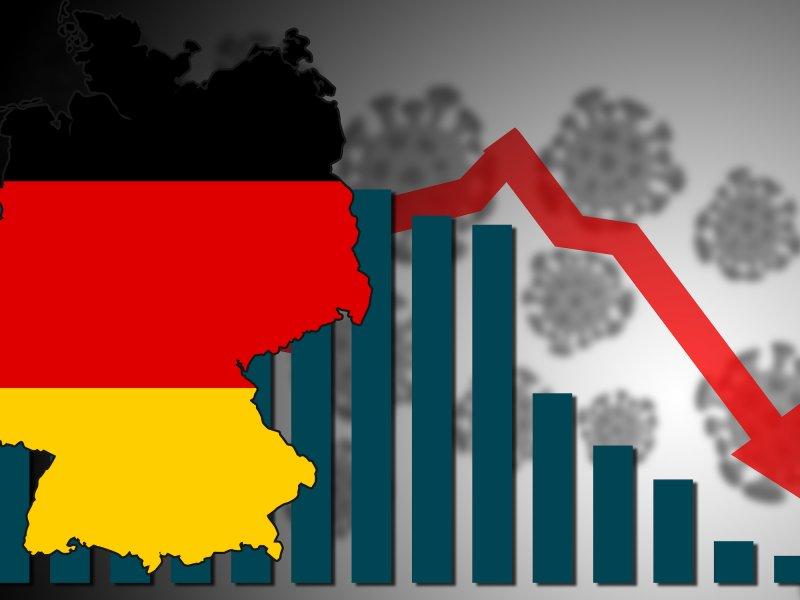
Europe’s economy faced a flurry of key data releases on November 25, 2025: Germany’s November IFO Business Climate Index unexpectedly edged down, the flash HCOB Composite PMI fell sharply, while the final Q3 GDP figure maintained a 0.3% year-on-year growth—though market concerns over potential downward revisions have intensified. On the same day, the UK’s November CBI Retail Sales Balance was officially released, providing a crucial clue for assessing the vitality of British consumer demand. As the Euro Zone’s economic engine, Germany is experiencing a marginal slowdown in growth momentum, compounded by uncertainties surrounding the UK’s consumption recovery, placing Europe’s economic recovery on a dual track of challenges.
Germany’s economic "cooling signals" have converged in November. Data from the Munich-based IFO Institute for Economic Research showed that the country’s Business Climate Index slipped slightly from 88.4 in October to 88.1 in November, falling short of the market expectation of 88.5. This figure extends the cautious tone that has prevailed since mid-year. While businesses’ assessment of the current situation improved modestly—with the Current Assessment Index rising from 85.3 to 85.6—a significant drop in the Expectations Index emerged as the core drag on overall sentiment. The November Business Expectations Index fell from 91.6 the previous month to 90.6, well below the market’s forecast of stability, reflecting a severe lack of confidence among enterprises in a rapid economic recovery. Clemens Fuest, President of the IFO Institute, stated outright that the manufacturing outlook has been "severely hit," with businesses generally lacking faith in a short-term recovery. This also underscores lingering doubts about the government’s plans to boost growth through infrastructure and defense investments.
PMI data further confirms the pressure on Germany’s economic growth. The flash HCOB Composite PMI for November plummeted from 53.9 in October to 52.1, a two-month low and below the market expectation of 53.7, indicating a marked slowdown in private sector expansion. Breaking it down, the manufacturing sector’s contraction has deepened: the flash PMI dropped from 49.6 to 48.4, a six-month low, in stark contrast to the market’s expected slight rebound to 49.8. Export sales saw a particularly sharp decline, falling at the fastest pace since January. Weak demand has led to a continuous reduction in unfilled orders across industries, with layoff rates also picking up slightly. Although the services sector remains in expansion territory, its growth momentum has weakened significantly—the flash PMI fell from 54.6 to 52.7, also below the expected 54.0—becoming a key factor dragging down the composite index. Cyrus de la Rubia, Chief Economist at Hamburg Commercial Bank, commented that these data represent a major setback for Germany, with the economy likely to advance only at a modest pace in the fourth quarter.
The final Q3 GDP data released on the same day failed to deliver positive surprises. Figures showed that after seasonal and calendar adjustments, Germany’s real GDP grew by 0.3% year-on-year, unchanged from the revised previous value, with a 0.0% quarter-on-quarter increase and a 0.0% annualized growth rate. While in line with market expectations, the inherent momentum driving growth remains weak. As the Euro Zone’s largest economy, Germany’s lackluster performance directly influences the entire bloc’s recovery pace. Although the Euro Zone’s November composite PMI remained stable at 52.4, the slowdown in Germany’s growth as the core engine may constrain the overall recovery strength of the Euro Zone. Particularly against the backdrop of weak manufacturing exports, the unevenness of regional economic growth is likely to intensify further.
The spillover effects of Germany’s weak economic data have already reverberated in financial markets. On November 24, the euro faced resistance above the 1.15 level against the US dollar, with the unexpected drop in the business climate index limiting the currency’s upside potential. For the European Central Bank (ECB), the pressure on Germany’s economy combined with divergent inflation trends across the Euro Zone will further complicate monetary policy formulation. Persistent weakness in Germany could fuel market expectations of ECB easing, yet the lingering resilience of services sector inflation in the Euro Zone restricts the scope for aggressive loosening. Meanwhile, the performance of UK retail sales data will also shape the Bank of England’s interest rate path—if consumption recovery falls short of expectations, the previous rate hike cycle may come to an early end.
Overall, Europe’s economic data paints a picture of divergent recovery momentum. As the Euro Zone’s core, Germany is grappling with a dual drag from contracting manufacturing and slowing services growth, leading to a marginal decline in growth momentum. Its performance not only impacts its own economic outlook but also directly dictates the pace of the Euro Zone’s overall recovery. The release of UK retail sales data, meanwhile, has become a key variable for judging domestic demand vitality in Europe’s other major economy. Against a backdrop of global economic uncertainty and ongoing international trade frictions, Europe’s economic recovery is confronting dual challenges: insufficient momentum from its core engine and uneven domestic demand recovery. Going forward, key areas of focus will include the recovery trajectory of Germany’s manufacturing sector, the strength of UK consumer demand improvement, and the policy responses from the ECB and the Bank of England—factors that will collectively determine the future direction of Europe’s economy.

報告顯示,中國電力投資加速增長,預計2024年電網基建投資將超過5300億元。
近日,市場迎來了一則引人注目的消息:工業巨頭3M公司(MMM.N)在本周五公布了其季度業績報告,隨後股價飆升至近兩年來的
最近,外媒給OpenAI算了筆賬,今年可能要血虧50億美元。
近日,巴黎奧運會和世界鐵人三項協會聯合發布了一項重大決定,宣布因塞納河水質污染問題,原定於近期進行的奧運會鐵人三項首次下
當地時間7月18日,法國巴黎發生了一起令人震驚的持刀襲警事件。
近期,一則重大消息在國際舞臺上引起軒然大波,馬來西亞宣布加入金磚國家。
調查發現,互聯網和智能手機的使用幹擾了韓國近五分之一學生的生活。